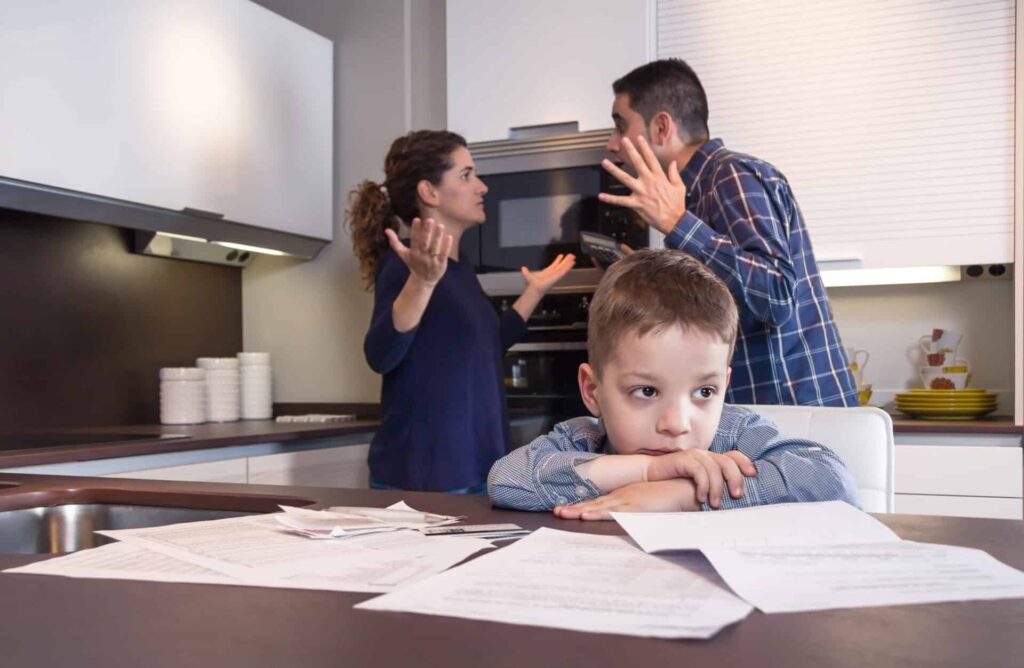Can I Get Sole Custody of My Child in Texas?
One of the crucial things you have to deal with when going through a divorce is child custody if you have minor children. As a parent, you want what’s best for your child and think being granted sole custody is the best arrangement. Sole custody means you have the exclusive right to make all decisions concerning your child’s education, health, and welfare.
Sole custody also means you’re responsible for the child’s physical care and control. However, getting sole custody can be challenging, as courts consider several factors when awarding custody. Family law attorneys in San Antonio provide an overview of these factors.
One reason sole custody is so difficult to obtain is that Texas law actually presumes all parents should be joint managing conservators. In order to win sole custody, the judge must place an affirmative statement in the final court order that joint managing conservatorship is not in the child’s best interests. However, even with a joint managing conservatorship, the judge can limit the periods of possession of the child or order supervised visits, and the judge may decide which category of decisions concerning the child are exclusive to one parent and which decisions require the parents to both agree.
What are the Best Interests of the Child Principle in Child Custody Cases?
The child’s best interests principle covers all other considerations in custody battles. Judges will consider each custody arrangement’s impact on the child’s psychological, physical, and emotional well-being. The judge will carefully weigh all of the circumstances in light of how they affect the child, not necessarily how they affect the parent.
For example, one parent may be more financially stable to care for the child’s education, medical, and basic needs. However, they may not have adequate time to raise the child, or they may have a history of domestic or child abuse. The parent who is not financially stable may be granted custody with an order for the other parent to pay increased child support. Child custody lawyers in San Antonio can help you evaluate all the factors that work in your favor to enhance the chance of being granted custody.
Parents’ Living Conditions
Family courts evaluate the parents’ living conditions concerning their impact on a child’s development. Living conditions entail several other factors, such as:
- Proximity to the child’s school, activity centers, and the other parent’s residence
- The parent’s employment responsibilities
- Whether the parent lives in a family home
- Residence agreements between the parents
In most cases, the parent without a primary residence will be denied primary custody of the child, but there are times when the judge will award primary to a parent who lives with the grandparents. If a parent is already living with another partner unknown to the child, their chances of being awarded sole custody can be significantly reduced.
Parents’ Past Criminal Records
Judges will evaluate the past criminal record of both parents in determining whether they are well-suited to be awarded custody. A history of violent crimes, domestic abuse, and alcohol and substance abuse influences custody decisions. Courts can also prohibit visitation until a child is of a certain age if a parent has a past conviction of first-degree murder or injury to a child.
The frequency and length of past criminal sentences can also impact child custody decisions. Judges will often be hesitant to award custody to parents with a history of long sentences as they may deem them unfit to care for the child.
Level of Past Parental Involvement in the Child’s Affairs
A parent’s past and present interaction with the child and their degree of involvement are crucial in determining who gets sole child custody. If both parents had equal involvement before the divorce, the court would likely want to maintain the status quo by granting joint custody instead of sole custody.
Parent-Child Relationship
While a parent could be deeply involved in the child’s affairs, they may not share a great relationship. The nature of the connection between a parent and the child is crucial as it determines how well the child can cope with the separation while living with that parent. On the other hand, the policy of Texas courts is to encourage a relationship with both parents.
Courts will always strive to promote and protect the child’s relationship with both parents whenever possible but may prioritize the parent with an already established strong bond. In evaluating the parent-child relationship, courts will consider the parent’s ability to support the child emotionally while meeting their physical and developmental needs.
As an extension of the parent-child relationship, courts will consider each parent’s willingness to support the child’s relationship with the other parent. Courts don’t take it kindly when one parent bad-mouths the other in front of the child. Any efforts to alienate the other parent can be viewed as intrusive. San Antonio child custody attorneys strongly advise against this behavior as it could weaken your case.
Violence and Adultery
Domestic violence is a critical consideration in custody determination. Judges take into account the frequency and severity of abuse and any evidence of ongoing threats or actual violence. Adultery reflects on a parent’s character and judgment, impacting custody decisions.
If your ex-spouse is violent, has a history of abuse, or you believe they are adulterous, let your San Antonio child custody attorneys know. They can use this information to show cause as to why you’re the better-suited parent to be granted sole custody of your child. In cases of violence, it is also important to notify the police and to press criminal charges.
The Child’s Desires and Preferences
Family courts often consider the child’s preference if they are of a certain age. Keep in mind that “consider the child’s preference,” does not necessarily mean doing what the child requests. In Texas, courts may consult a child regarding their preferred residence if they are over 12 years old. The Texas Family Code 153.009 allows parties to a divorce case to file a request for the court to interview the child concerning their residency wishes, but it is not always a good strategy.
The session happens privately in the judge’s chambers, but a court reporter must be present to prepare the transcript. The judge may also allow the parent’s child custody lawyers to be present during the interview, but in most cases the judge does not permit it. Many times the judge will simply tell the parents afterwards that the child loves both parents and really does not want to choose. Further, if the child appears to have been coached on what to say, that reflects poorly on the parent who may have done the coaching.
An Experienced Family Lawyer Can Help You Fight for a Favorable Child Custody Outcome
Obtaining sole custody of your child can be complex, given that judges consider a combination of factors to uphold the child’s best interests. Every child deserves the care and support of both parents, and courts will often try to enforce the custody arrangement that best promotes the situation.
However, careful planning and legal representation by child custody lawyers in San Antonio can give you an edge for a favorable outcome. South TX Family Law is a family and estate planning law firm with experienced lawyers who can walk you through your child custody case. We can help you gather the relevant evidence that enhances your chances of being granted custody. Call us at (210) 775-0353 to schedule a consultation.






